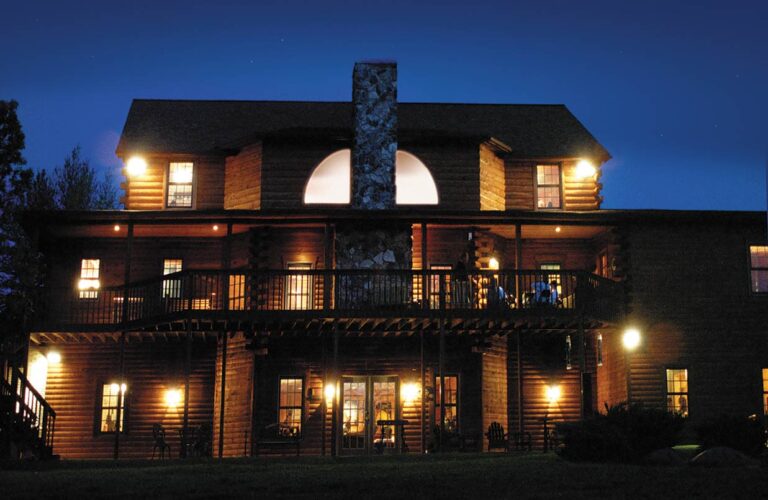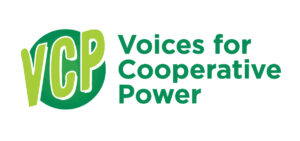 Member-owned electric cooperatives and public power districts belong to a nationwide network that touches millions of families each day. Besides providing electricity to keep homes, farms, businesses and schools well lighted, comfortable and running efficiently, those co-ops and districts help make communities better while finding ways to meet their members needs.
Member-owned electric cooperatives and public power districts belong to a nationwide network that touches millions of families each day. Besides providing electricity to keep homes, farms, businesses and schools well lighted, comfortable and running efficiently, those co-ops and districts help make communities better while finding ways to meet their members needs.
It’s not just the line crews you see on the roads or up the poles repairing wires, or the member services clerks you greet you when you pay your bills who make a difference. They’re supported by finance, information services, insurance and technology specialists working for member-owned utilities across the country.
Keeping safety in mind
“Safety is first and foremost, for our members and for our members’ members,” said Chad Ogren, vice president of sales and marketing at Federated Rural Electric Insurance Exchange.
The Shawnee, Kansas insurance cooperative provides insurance for electric cooperatives. It also maintains a team of risk management specialists who constantly analyze the challenges faced by co-ops serving rural and exurban communities.
“The training and education materials and information that we provide along with the support of our safety and loss prevention team supports an overall culture of safety,” said Ogren. “This allows our members to focus on their business of providing safe, affordable and reliable energy to their members.”
Smoother service silently
Busy signals and unanswered phones can be frustrating for consumers, but digital communications is helping to make that a thing of the past.
“Serving customers through web and mobile apps such as SmartHub® allows for bill payment and leading-edge customer communications 24 hours a day and seven days a week,” said Jasper Schneider, vice president of member and industry at National Information Solutions Cooperative (NISC).
St. Louis-based NISC is a technology support cooperative that helps electric co-ops with innovative technology solutions like apps members use to communicate with their electric co-ops, public power districts and telecommunications cooperatives.
Powerful partners
As the only lender created and owned by electric cooperatives, Dulles, Virginia-based National Rural Utilities Cooperative Finance Corporation (CFC) provides member borrowers with the capital and industry-leading financial products they need to succeed in an increasingly complex utility environment.
“We take our lead from the electric co-op network,” says Joel Allen, CFC senior vice president of member services. “When our members come to us with ideas and projects, we listen and respond with flexible solutions.”
Beyond core lending, CFC also plays a key role in preserving USDA’s Rural Economic Development Loan and Grant Program (REDL&G).
Community investment
Financial support is essential to keeping infrastructure projects moving along – projects that create jobs and sustain economic growth – and that’s the role CoBank helps to fill for rural power, water and communications providers throughout the United States.
“Our mission is to serve as a dependable provider of credit and other value-added financial services to agriculture and rural infrastructure businesses for the benefit of rural America,” said Jo Solonika, vice president of corporate communications for Denver-based CoBank.
“We consistently demonstrate our focus on rural America and do our utmost to be a trusted advisor and partner for our customers who are responsible for keeping folks all across the country connected to the critical services they need,” said Solonika.
In 2016 alone, CoBank contributed more than $8 million to charitable organizations operating in the communities their customers serve.
Keyless entry
Doing business with your electric cooperative by telephone can be more convenient than visiting a member services office, and adding voice communication to the process can make it painless.
Southeastern Data Cooperative (SEDC) is helping electric cooperatives of all sizes harness interactive voice response technology to improve member services. The Atlanta-based information technology co-op’s cloud-based AutoCue IVR® service dramatically expands a utility’s communications capabilities.
“IVR can handle any number of consumer calls simultaneously so customer service can easily handle even high-call events, such as major outages,” says Robin Vogt, director of communications with SEDC.
Derrill Holly writes on cooperative issues for the National Rural Electric Cooperative Association, the Arlington, Va.-based service arm of the nation’s 900-plus consumer-owned, not-for-profit electric cooperatives.








